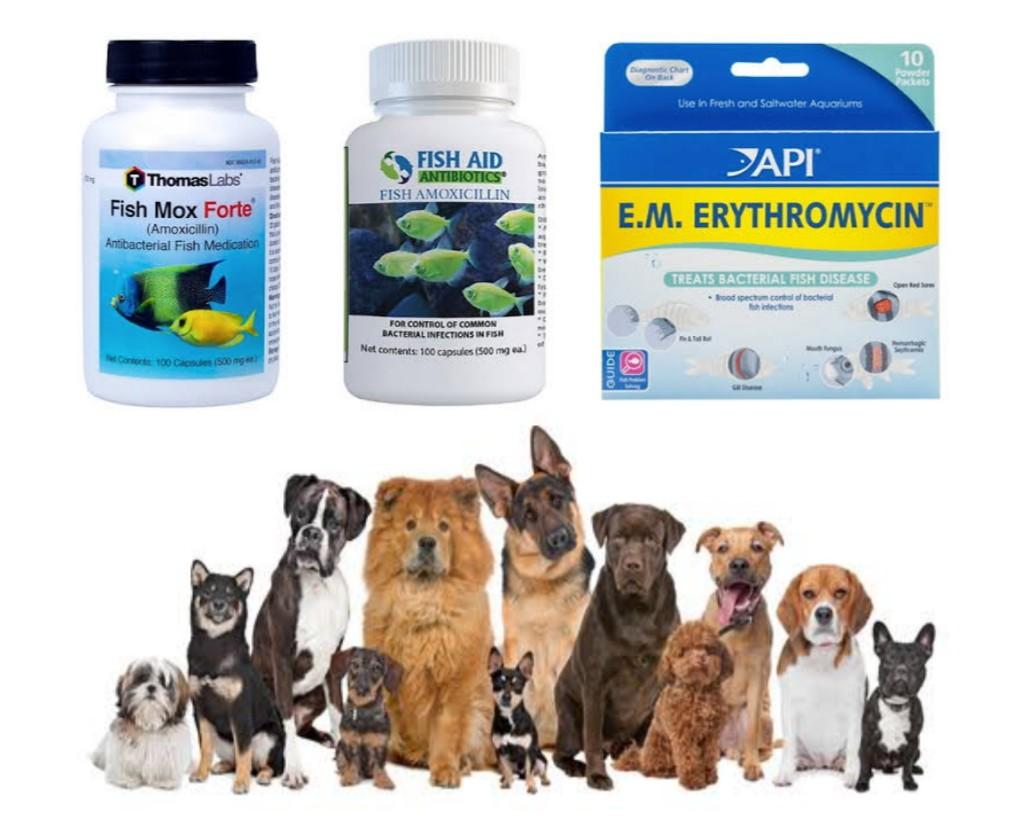Veterinary pharmaceuticals include a wide range of anti-infectives and additives in the use for animal health, nutrition, reproduction, and productivity. Antimicrobials are among the most extensively used drugs in developing countries largely due to the large population of livestock and the burden of infectious diseases. The introduction of penicillin in 1943 and other antibiotics thereafter provided remedies for many infections in humans and animals, reducing mortality and productivity losses. Since then, a repertoire of antibiotics and antimicrobials has been introduced as chemotherapeutics and/or prophylaxis.
Can You Use Fish Antibiotics On Dogs?
Antibiotics vary with their chemical structure, and this will determine what type of infections they treat and whether they kill the bacteria (bactericidal) or simply slow bacterial growth to let the immune system defeat the infection (bacteriostatic). Some antibiotics can be given as pills or oral liquids, while others require an injection. Many of the antibiotics used in dogs are the same types that are given to fish, but the doses can be different. Understanding drug pharmacokinetics (PK) and pharmacodynamics (PD) is essential when determining the most effective antibiotic therapy. In addition, successful antimicrobial therapy requires an appropriate choice of antibiotic, including dose, frequency, and duration.
According to the American Veterinary Medical Foundation (AVMF) you and your veterinarian make up the all-star team when it comes to keeping your pet healthy. But you’re not just a Most Valuable Player on the team, you’ve got an opportunity to be an MPVO – Most Valuable Pet Owner. How can you do that? Educate yourself on proper pet care and pet health problems by asking questions and finding answers from reliable, trusted sources of information – such as your veterinarian, and their staff. Use only pet-specific medication for your dog avoid giving Fish or cat medications. If in doubt about any information ask your veterinarian.
Importance of Veterinary Care
Adult dogs should have a complete veterinary examination at least once a year. Puppies need veterinary visits usually every 3 to 4 weeks until they are about 4 months old. Geriatric dogs (older than 7 to 8 years old) should see their veterinarian twice a year or more frequently because illness is more common in older pets and it can be identified sooner. Your veterinarian may recommend a wellness program for your pet, including routine blood work to monitor for problems such as early kidney or liver disease.
Signs of Illness
Because you are more familiar with your dog than anyone else, you should watch it carefully for subtle signs of illness that another person or even a veterinarian may miss. General signs of illness include a lack of appetite or decreased activity. Other more specific signs include vomiting and diarrhea, urinating more (or less) frequently, coughing and sneezing, or a discharge from the eyes, ears, or nose. Illness can also show up as a loss of hair or itchy areas on the skin or around the ears. Problems with the musculoskeletal system are often seen as stiffness or lameness, such as not putting weight on a leg. If your dog shows any of these signs for more than a day or two, a visit with your veterinarian is a good idea.
Giving Medication
Pills and chewable medications are usually relatively easy to administer to dogs. Most dogs will readily eat a pill that is hidden in a small treat, such as a piece of cheese or a bit of peanut butter. Sometimes, gently holding the dog’s muzzle closed until you are sure that it has swallowed can be helpful. Liquid medications are sometimes prescribed, particularly for puppies. Liquids can be given via a syringe into the rear of the dog’s mouth by inserting the tip of the syringe near the back teeth on either side. Holding the dog’s head pointing partially upward can help prevent spills. Spot-on products or other topical medications are administered directly on the coat or skin. If your dog needs eye drops or ear medication, your veterinarian or veterinary technician will give you a demonstration. Regardless of the type of medication or how it is to be given, it is important to read and follow all label instructions. SEE: Can Humans Take Fish Antibiotics?






